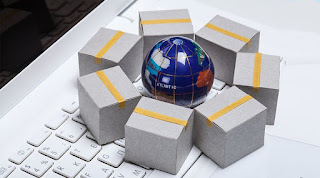Coinspeaker
Vantage Group CEO Lyle Hauser on the Benefits and Challenges of an IoT-Blockchain Marriage
Lyle Hauser views the Internet of Things (IoT) as a vast frontier, and one that is expanding in scope by the day. Whether the discussion is of smart cities, cars, homes or televisions, whether it turns toward smart health or farming, whether there is a mention of wearables or appliances, Hauser – CEO of the Vantage Group, a South Florida-based private equity firm and specialized business consultancy – believes the surface of this technology is only being scratched.
“It absolutely is still somewhat in its infancy,” he said.
A December 2018 post on the website Cointelegraph.com, written by Chrisjan Pauw, underscored the sheer enormity of the IoT, in terms of dollars and devices. Pauw cited the forecasts of three different sources – Gartner, Business Insider and IDC – in noting that by 2020, there are expected to be anywhere from 20.4 billion to 30 billion IoT devices in use, and that according to a fourth source, IHS, that number will balloon to 125 billion a decade later.
On the money side of things, Pauw noted that IDC is predicting IoT revenues of $357 billion by the end of 2019, and according to Bain & Co. that figure could be as great as $450 billion by the end of 2020. Five years beyond that, Pauw wrote, McKinsey predicts there will be an $11.1 trillion impact by the IoT.
So yes, a vast frontier, extending as far as the eye can see – and one that in Hauser’s mind offers greater possibilities than even the Internet.
As he put it, it is “going to explode – and in conjunction with certain things in (Digital Ledger Technology).”
Hold that thought a moment, while we consider how lawless this frontier is. Some have even gone so far as to declare IoT security a “doomsday scenario waiting to unfold,” because so many devices are either unsecured or poorly secured.
There are numerous examples of breaches, not the least of which was the Mirai botnet in 2016, a cyberattack that crippled Dyn, a domain registration services provider, and impacted such popular sites as Twitter, Netflix, PayPal and the New York Times.
Pauw mentioned two other instances of the IoT’s vulnerability – the FDA recall in August 2017 of 465,000 cardiac pacemakers because of security concerns and two separate attacks on a Jeep Cherokee – one in 2015, the other in 2016 – the first of which led to the recall of 1.4 million vehicles made by Fiat Chrysler.
While security concerns have curtailed enthusiasm over IoT to some degree, they have not come close to quashing it. As TIBCO software Global Chief Technology Officer Nelson Petracek wrote for Forbes, most businesses are still on board with this technology, knowing full well that it is the only way to fly in this day and age.
Hauser is among those who believe that blockchain, a form of DLT most often associated with the cryptocurrency bitcoin, might play a key role in securing the IoT frontier. At present, all connected devices, no matter how close or far apart, communicate with one another through the cloud (i.e., the Internet).
Blockchain eliminates the need for a centralized authority; rather, two devices can directly exchange money and/or data, without any need for a digital middleman.
As Forrester analyst Dan Bieler said in one post:
“As Internet of Things applications are by definition distributed, it’s only normal that the distributed ledger technology, which blockchain is, will play a role in how devices will communicate directly between each other (keeping a ledger and thus a trail of not just devices but also how they interact and, potentially, in which state they are and how they are “handled” in the case of tagged goods).”
Nicholas Windpassinger, author of the book Digitize or Die, was quoted in that same report as saying that blockchain is “the missing link” in IoT’s progression. Another report labeled it “a silver bullet” on the interconnected frontier.
Not only will blockchain make for more secure transactions; it will also allow for greater speed, efficiency and accountability. That was shown with IBM Blockchain, which because of smart contracts can track every item and package and in general was found to increase trust between parties and devices, drive down costs and hasten transactions.
According to Cointelegraph, some of the other IoT/blockchain platforms to emerge are:
- IOTA: One of the first of its kind, it was designed to smooth out transactions and data transfers between connected devices and led in time to the creation of a platform called Tangle, which took blockchain technology one step further in that it allowed users to validate the transactions of other users. IOTA has entered into partnerships with companies like Bosch (electronics/engineering), Fujitsu (information technology), Den Norske Bank and Volkswagen.
- Hyundai Digital Asset Company (Hdac): Its system is such that it allows for the sort of speed and volume needed in smart factories, homes and buildings.
- VeChain: Capable of tracking important metrics of items as they progress through the supply chain – items such as medical devices, luxury items and automobiles.
- Waltonchain: Also geared toward the supply chain, in that it traces food and drugs and top-of-the-line clothing.
- Streamr: Seen as being particularly applicable to automobiles, in that its sensors allow for the tracking of such important data as traffic flow, road conditions and fuel prices.
The marriage between these two technologies is seen as being particularly relevant in the realm of autonomous vehicles, the ultimate interconnected device. Whereas at present ride-sharing services like Uber and Lyft are developing the means to operate such vehicles, blockchain would make it possible for individuals to own one, and share not only its cost but that of maintenance and the like.
Similar arrangements can be made for such things as 3-D printers and laser cutters, and as noted on the website Blockgeeks.com, there are implications in the areas of sustainability as well.
Specifically, there is a Brooklyn microgrid community that uses blockchain to track solar energy usage and allow for the purchase of credits toward this renewable resource. In addition, it is conceivable that residents of a given apartment complex could collaborate on a water catchment system – that smart contracts would obligate them to commit to a certain number of maintenance appointments, lest they lose the benefits of the system.
Collaborative consumption, Blockgeeks notes, is indeed coming into vogue, with a pay-per-use model that promises to be more energy efficient.
While all these developments sound promising, not everyone (including Petracek) is convinced that blockchain can cure what ails the IoT. There are, notably, scalability issues. At the same time, he concedes that blockchain will go a long way toward reshaping the IoT, that more than likely it will lead toward the emergence of a hybrid architecture.
In any case, Hauser regards the merging of these two technologies as a promising one, and one whose implications are wide-ranging as the IoT frontier.
Vantage Group CEO Lyle Hauser on the Benefits and Challenges of an IoT-Blockchain Marriage

Cryptocurrency is a digital currency that uses encryption (cryptography) to regulate the generation of currency and verify the transfer of funds, independently of a central bank. Cryptography is the practice and study of techniques for secure communication in the presence of third party adversaries.
Blockchain 101 · Crytpo Currency Market
—————————————————
Trezor: Hardware Wallet
Binance: Exchange for Traders
Ledger Nano S: Hardware Wallet
Coinbase: Exchange for Investors
CoinSwitch: Wallet-to-Wallet Exchange
Via: Vantage Group CEO Lyle Hauser on the Benefits and Challenges of an IoT-Blockchain Marriage
from Crypto Investor News™ http://bit.ly/2DOI9ad
via IFTTT Join Robinhood and we'll both get a stock like Apple, Ford, or Sprint for free. Make sure you use my link. http://bit.ly/2G2HXWf Email me at justplanegonefilms@gmail.com after signing up with my link, and I will personally help you with choosing which stocks to invest!

No comments:
Post a Comment